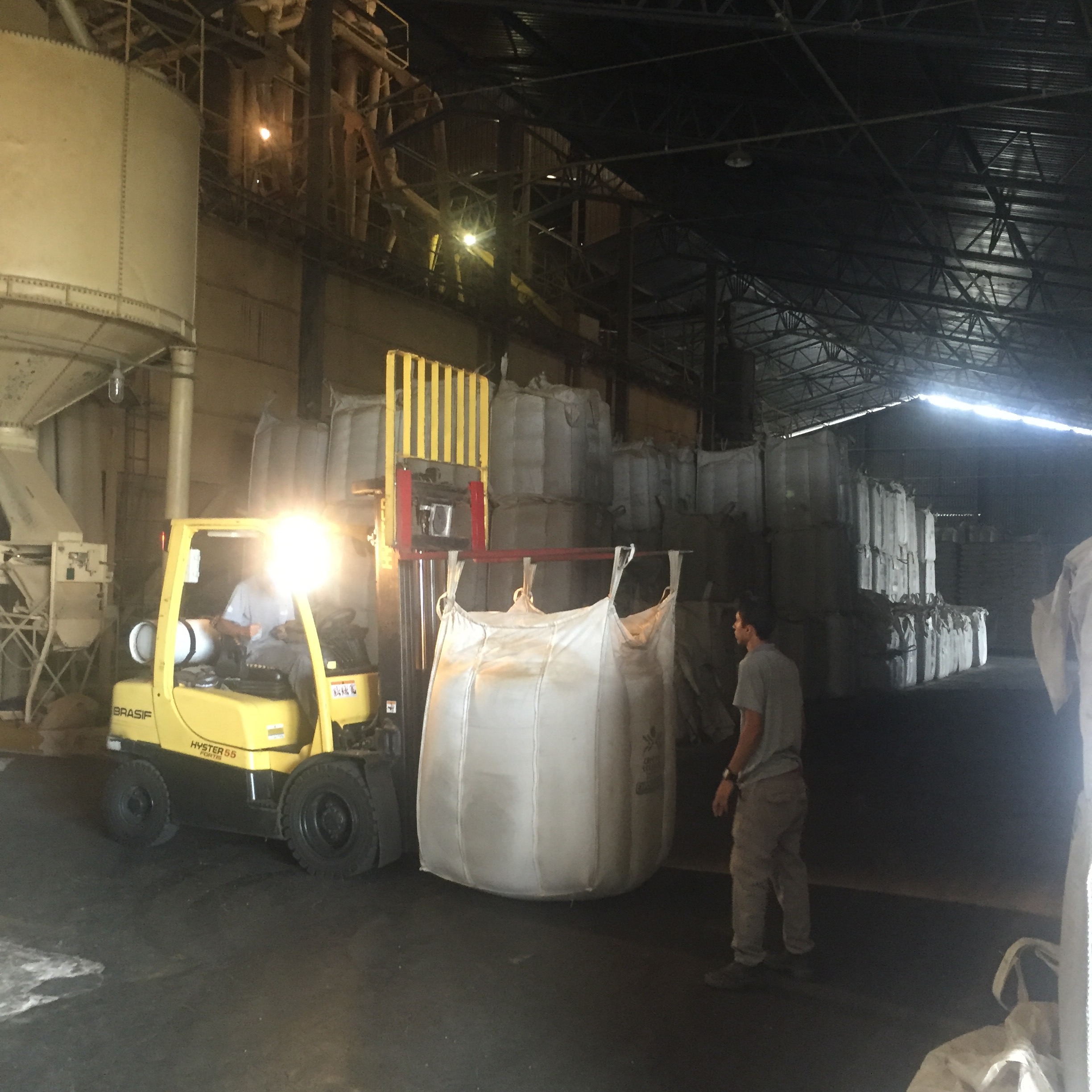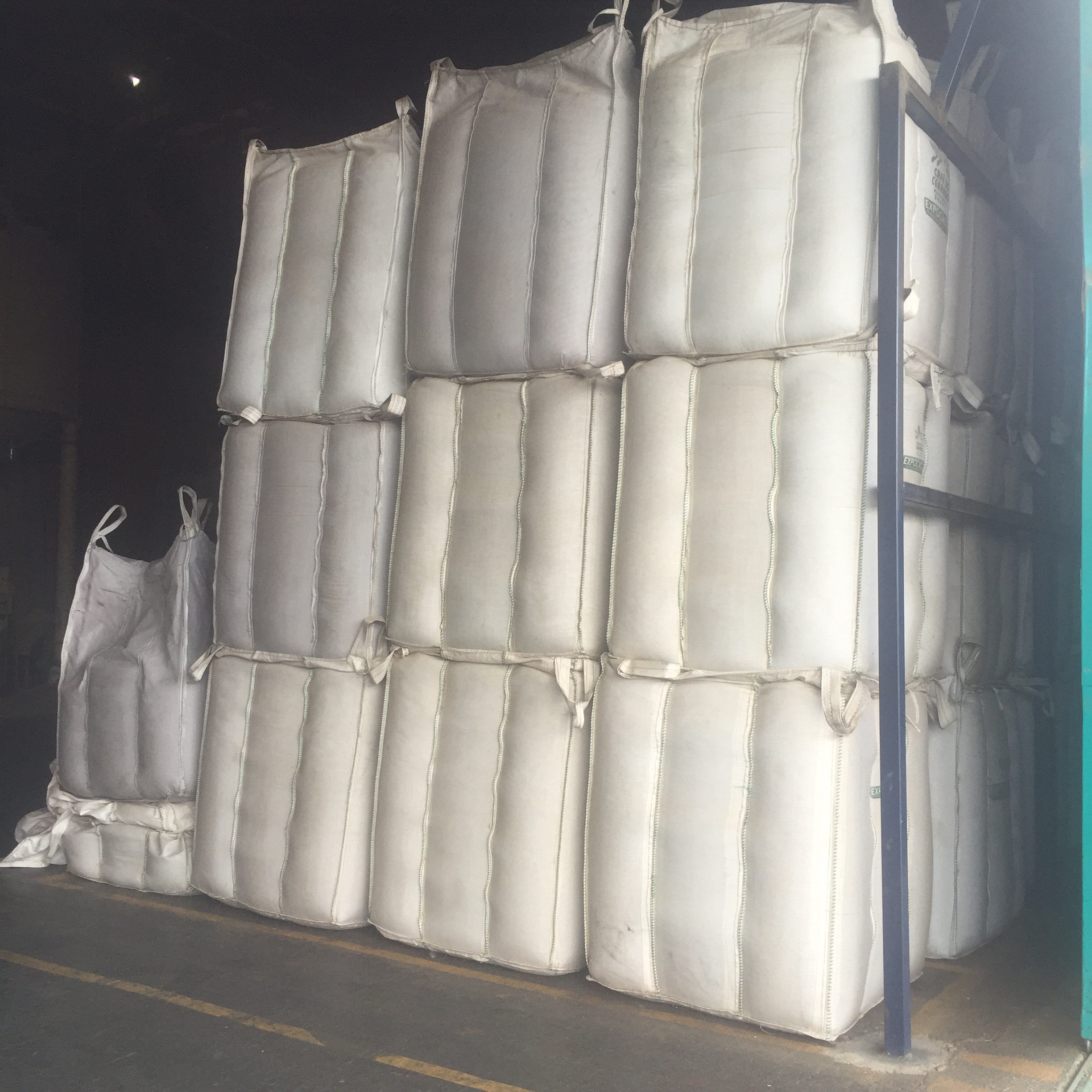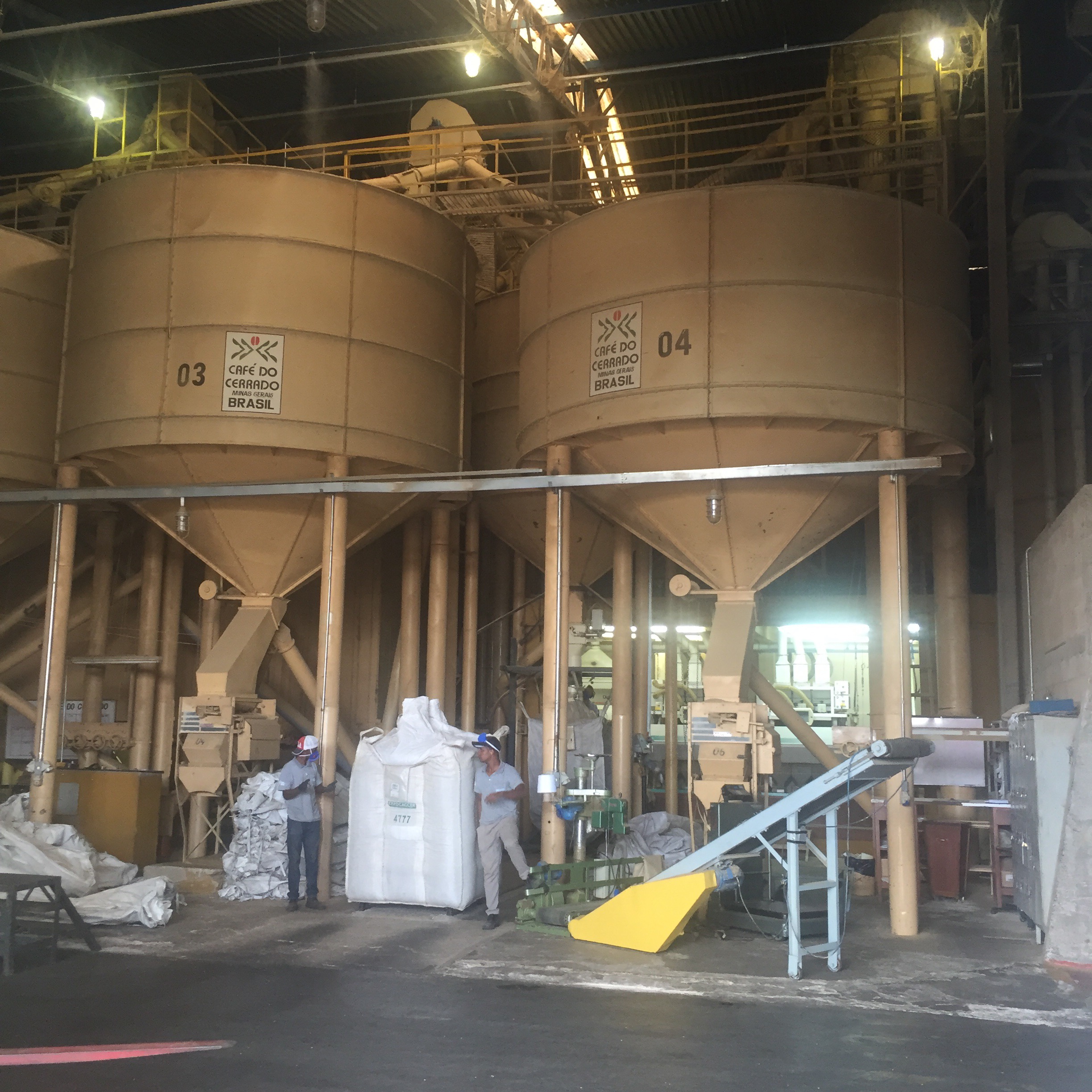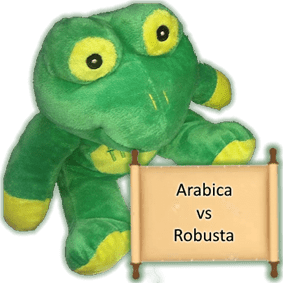Morning Day 1 – 25 April South American Trip 2016 an Expocaccer overview.
Patrocinio
Spent the morning driving through to Patrocinio with Patrick Griffin from Capricorn Coffee (as a representative of Falcon Specialty) local representative / agent with Junoir. Quite a hairy ride roads are narrow, and they drive fast in Brazil.
We arrived at Expocaccer.
Expocaccer Overview
Over our first decent coffee for the trip, first a Chemex (which was very fruity) and then a Hario. Quite unlike you standard coffees we have had from the region, and enjoyable. We spoke about the Expocaccer Co-operative.
It is owned by all the 541 growers, that elect a 15 man council that have a president that then works with the Sergio Gerlado da Silva (the general manager) in sorting, sizing and cupping the coffees. Note: figures are remembers from broken conversation and translation from Portugese, so may not be full accurate. The local producers produce about 1.3 million bags, the also bring in an additional coffee from other non member making up a total of 2 million. Making them the second largest cooperative in Brazil, and the largest concentrating on Quality. About 40% of the coffee is exported and around 30% of that coffee is specialty graded (80+). They have 8 resident Q graders (one who we cupped with) and they quality control is impressive. The producers are free to sell outside the co-operative and about 300 000 bags do go that route.
Process of the co-operative
The producers bring the coffees in 1 tonne bags, and a sample from each bag is selected t determine quality. The coffees are then size sorted and any screens that are 16+ or PeaBerry (they call that mocha here) are cupped and graded. the producers receive premiums depending on how much of each they produce, some listed below:
- For screen 17+ and extra .5%
- Cupping score of 83 – 85.75 an extra 5%
- Cupping score of 87+ an extra 15%
- UTZ, RFA or fair trade and extra 1%


After we visited the trading desk which is the other side of the contracts in coffee. When they sell the coffee the contracts are signed with the base point and then added premiums. Munro Lúcio dos Santos does this. He watches all the markets all the time to determine pricing and contract offerings. I forgot that for every seller in the futures commodity market there has to be a buyer and this is him for Expocaccer.
The co-operative also takes care of hedging for the producers, all the internal and external sales, all the certifications, all marketing, and final package and export.
Lunch


We popped out to lunch where we had a traditional Brazilian Fajo (I think) with a bacon top thing I cannot remember the name of.
Sizing and sorting
We returned to the warehouse to look that the sizing sorting and control. The warehouse has fully electronic humidity control. Every coffee that comes into the warehouse is tag and is followed electronically. As each lot is moved it is placed over a electronic sensor in the floor which then controls it movement through the process allowing for full trace-ability to the producer. Each coffee is size and optically sorted (see pics below)







Producers deliver fully processed green (so no parchment) to Expocaccer. Coffees they produce they mechanically picked, sorted and processed at the farm. Be it wet (a small but growing percentage) natural or pulp natural. Coffees are dried and depluped at the producer. Expocaccer promote use of new methods that import even the coffee like lot separation, raised drying beds, and well implemented production operations. These shine through in the coffee and hence the producer is motivated to produce better coffees.
The same is true for certified coffees the producer is rewarded on quality more but also certifications (1%) and this promotes that they get certified.
Very interesting morning, and learnt a lot about how important a centralize will body is to the producers. Let them concentrate on producing great coffee, and Expocaccer do the rest.




